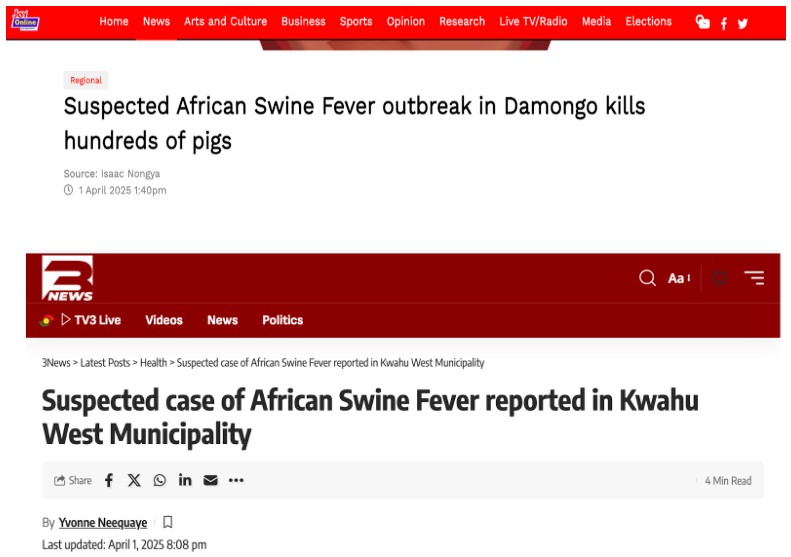Multiple media outlets have reported about a suspected outbreak of African Swine Fever (ASF) in some regions of Ghana (here, here, and here).
While some reports indicated that the main outbreak was in Damongo in the Savannah Region, others reported that a case had been identified in Kwahu in the Eastern Region.

Fig 1: Screenshots of articles on African Swine Fever
Below is a factsheet about the disease:
What is African Swine Fever?
According to the Food and Agriculture Organisation (FAO) of the United Nations (UN), “African Swine Fever (ASF) is a highly contagious and deadly viral disease that affects both domestic and wild pigs but poses no risk to human health.”
Mortality rates can reach 100%, making ASF one of the most devastating diseases in pig populations.
How the Disease Spreads
ASF spreads through direct contact with infected pigs or their bodily fluids, as well as indirectly through contaminated materials, including feed, clothing, farm equipment and vehicles.
Symptoms of African Swine Fever (ASF)
Infected pigs often exhibit symptoms such as;
- Fever
- Weakness
- Loss of appetite
- Loss of weight
- Skin haemorrhages (red patches) on the abdomen and ears
- Bluish colouration of the ears
- Swollen joints
How to Prevent the Spread of African Swine Fever
Currently, there is no treatment or vaccine available to combat ASF. Therefore, efforts to control the disease focus on preventing its spread through:
- Strengthening biosecurity
- Maintaining strict farm hygiene
- Limiting pig movement
- Ensuring safe feed practices.
Early detection, surveillance, and rapid response are also critical in lessening outbreaks and protecting pig farming communities.
By: Nusrat Essah



